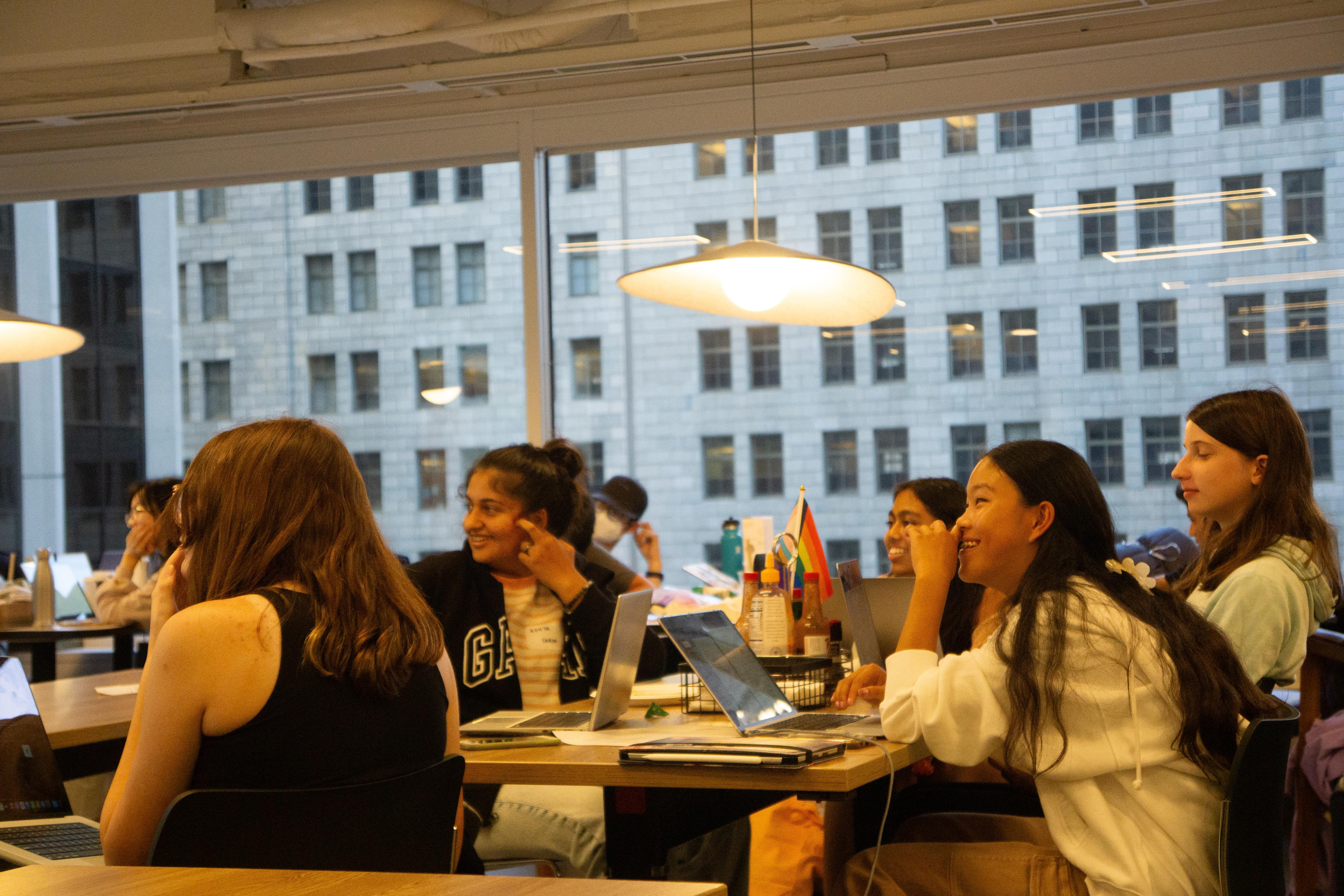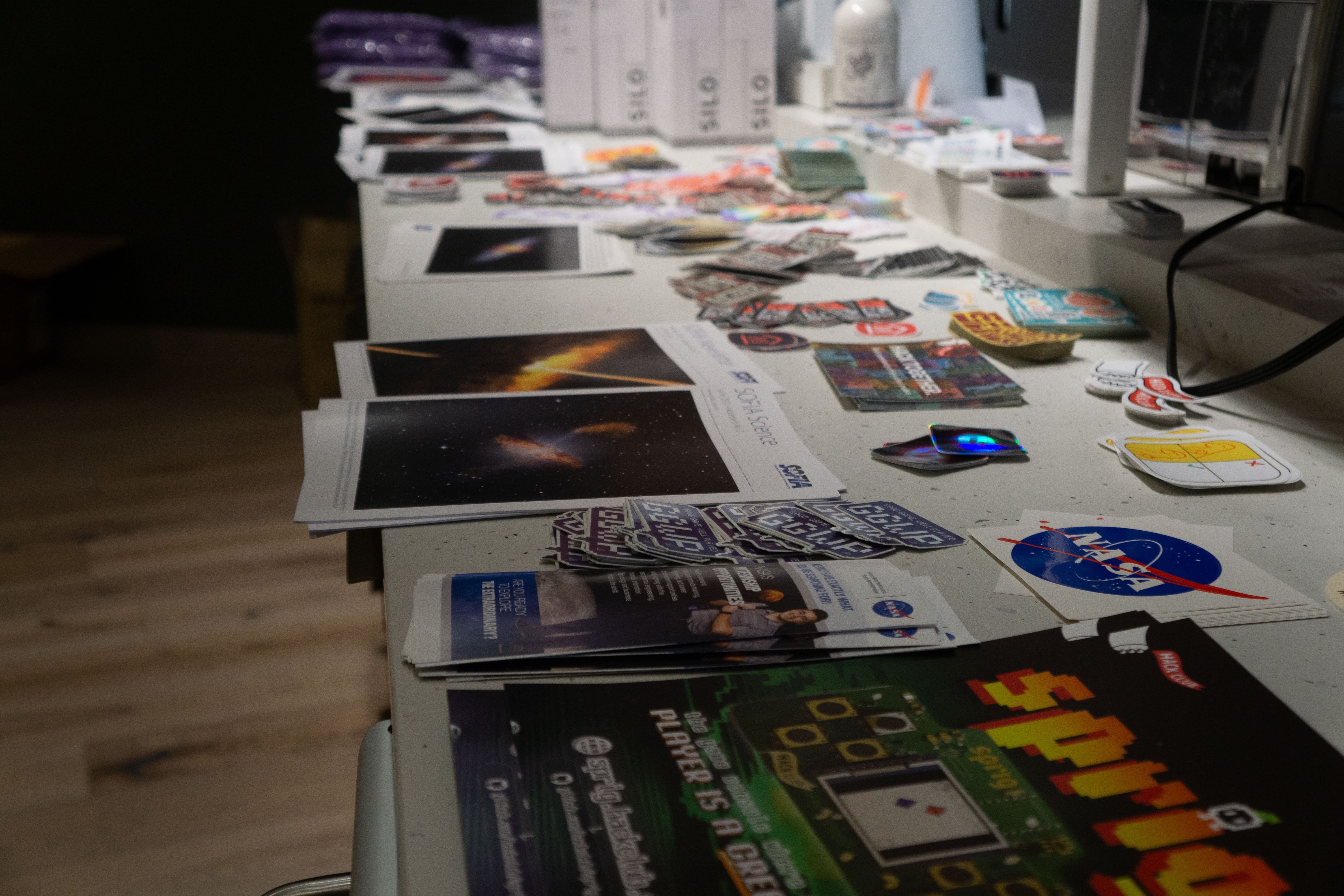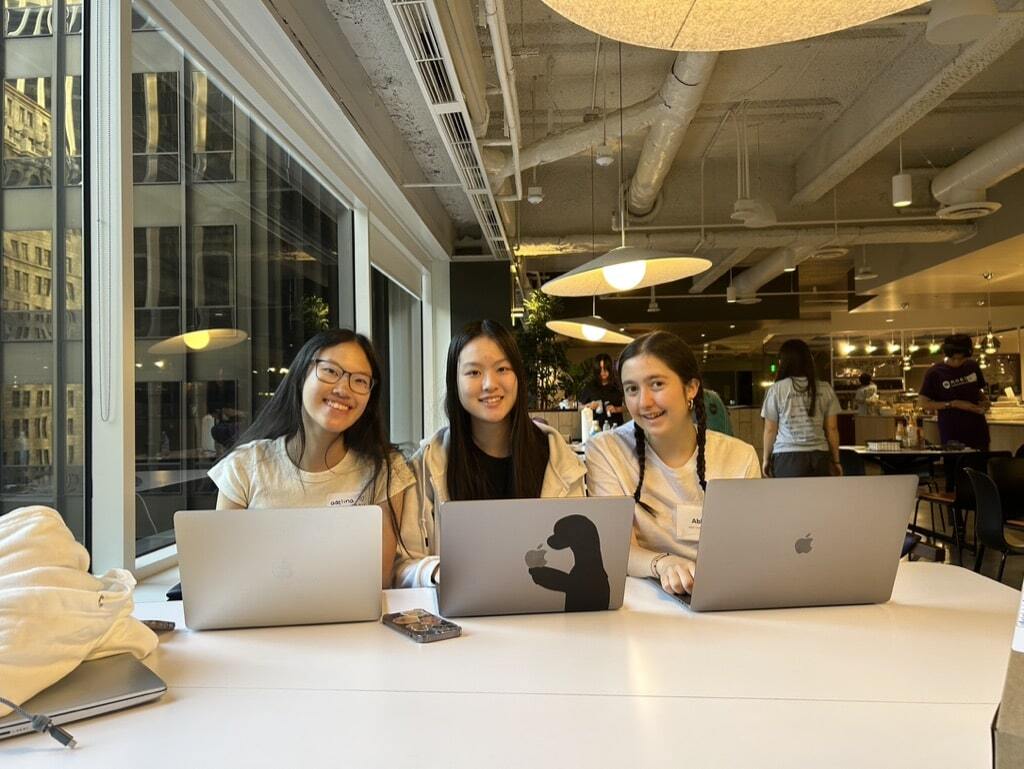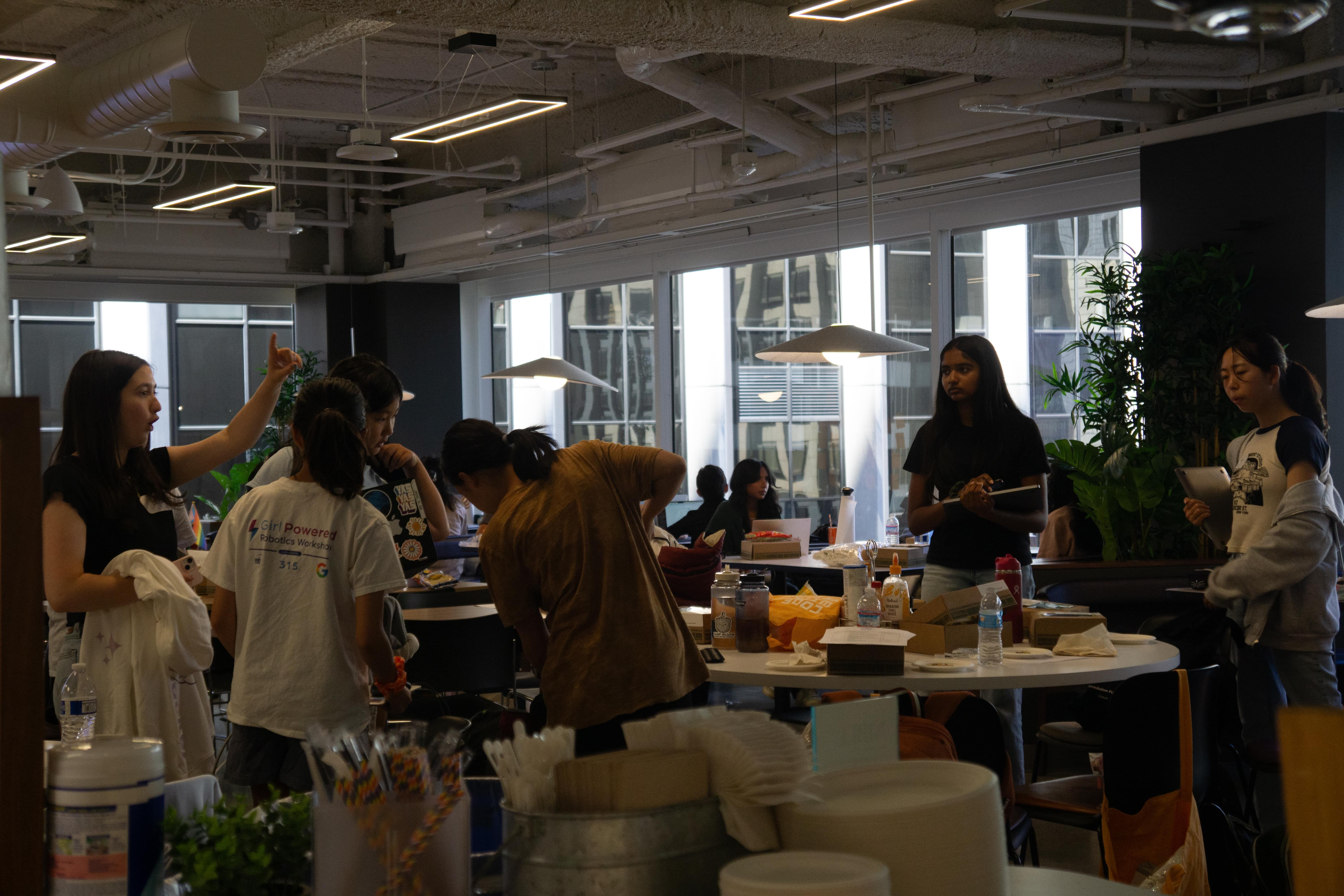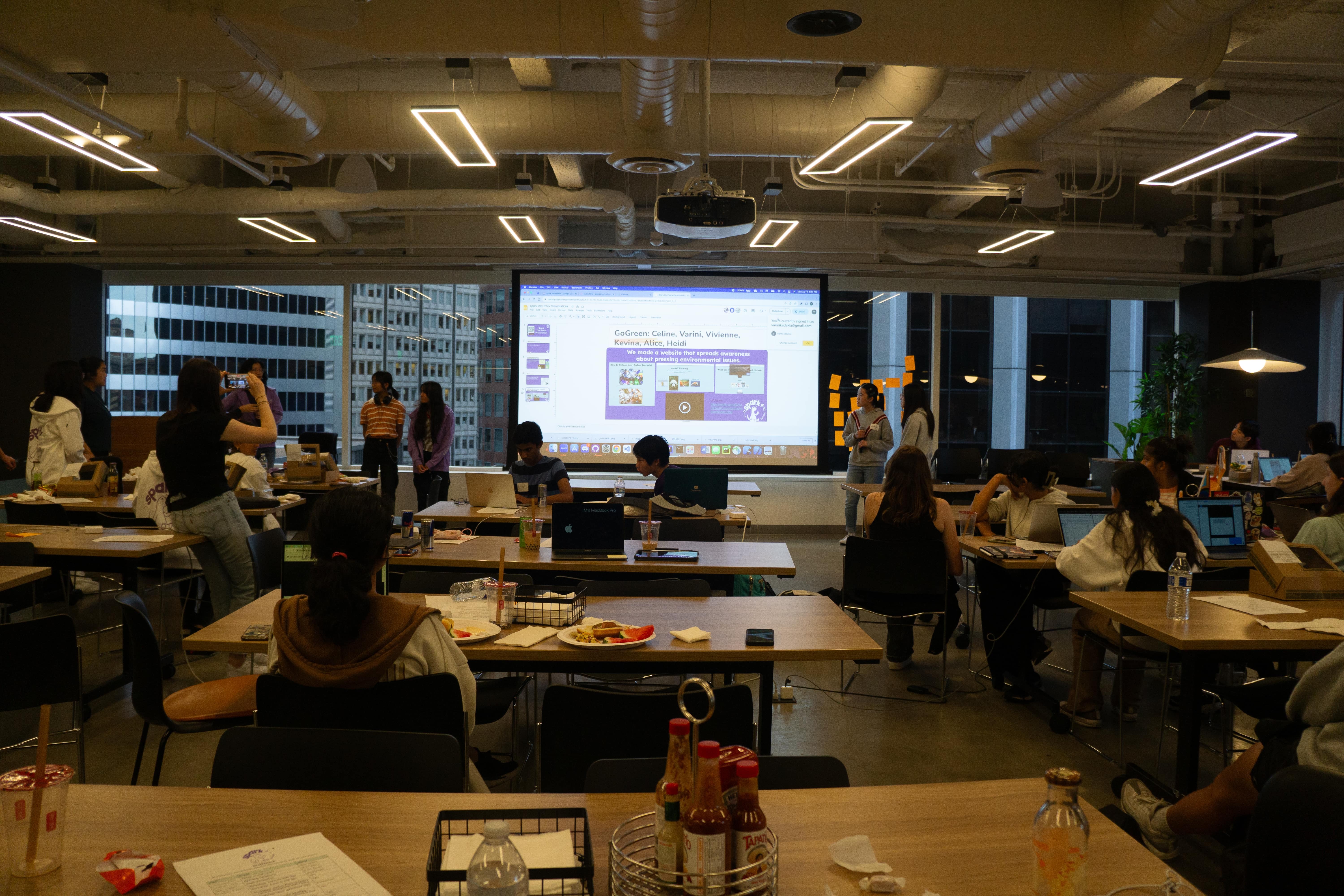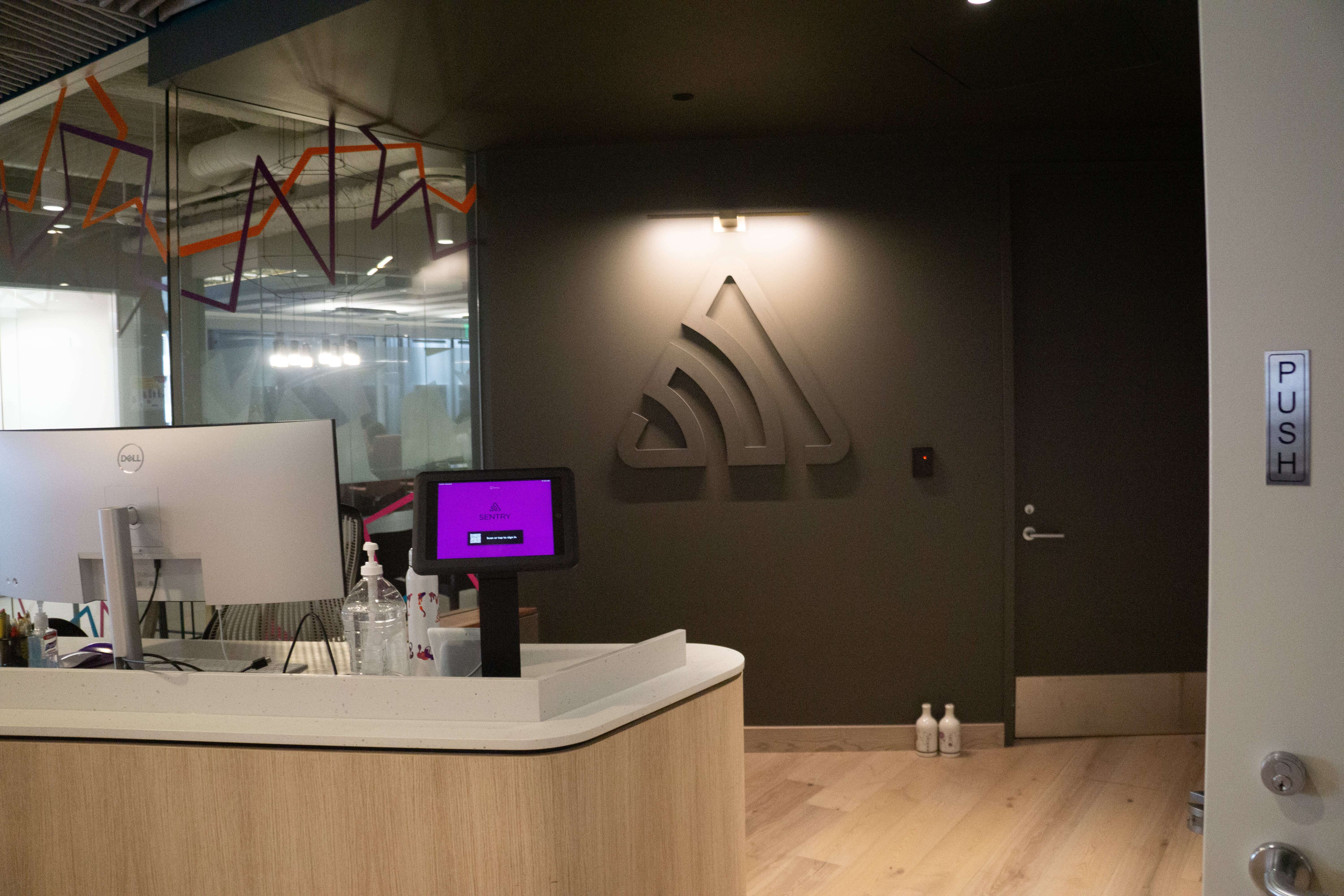Spark ✨
Interview with Maggie Liu, Spark Lead Organizer
Age: 18
Location: San Francisco Bay Area
Question: Could you introduce yourself and tell me a little bit about your involvement in Hack Club?
Maggie: I'm Maggie. I'm currently a college freshman at MIT, and while in high school I ran my school CS club as a Hack Club. I also helped organize a bunch of hackathons and I was on the Hack Club community team!
Question: How did you get involved with Days of Service and what made you want to organize one in your city?
Maggie: So I was invited to Horizon, which was the first pilot Days of Service. It was in New York and we worked with the Girl Scouts of Greater New York. It was honestly super cool to be able to take a bunch of middle and high school girls who had never touched coding before, and teach them to build their first websites or games. And I thought it would be super cool to organize something like that in the Bay Area because I know there are a bunch of young girls who may be interested in STEM, robotics and coding and we could teach them how to code!
Question: From your experience at Horizon, were there any elements of Horizon that you decided you wanted to specifically repeat with your event, or aspects to the event that you decided you wanted to pivot?
Maggie: Horizon was a lot shorter because it was just one day, and it wasn't even fully 12 hours. That was because we had the dinner event later that day. One thing we did differently with Spark was that it was actually a full 24 hour event, so it was overnight, which was amazing! That gave everyone a lot more time to both learn and also work on their projects! Having the same chill vibes as Horizon was important to us– we didn't have any prizes or things like that, and Horizon didn't either. Also, every participant walked away with something (we gave shark plushies out to everyone, which I thought was super cute).
I guess something else was just having a bunch of workshops throughout the day so the event was really focused on learning. We made it a point that even if you come in with zero experience, you would learn what you need in order to make your project.
Question: Can you tell us a bit about the partner organization that you worked with for Spark?
Maggie: We didn't have a specific partner organization but what we did was we reached out to a bunch of youth groups and we ended up getting a lot of Space Cookies to come to our event. Space Cookies is a Robotics team and Girl Scout troop who are all girls and they are super cool because they already have some prior experience with coding, but not specifically going to hackathons or building projects. Some of the Space Cookies’ responses were that this was their first hackathon that they had been to and that they thought it was a great experience!
Question: What were some of the biggest challenges in the initial stages of finding a partner organization?
Maggie: So we initially had a lot of difficulty finding a partner mostly because it was summer and robotics teams don't really meet during the summer because everyone's on vacation. The way we found out about Space Cookies is through Adelina, who was one of the organizers. Her sister is in Space Cookies, so she was actually able to reach out to them directly, and invite all those girls to come. Since we had difficulties making a formal partnership, we decided to just reach out to a bunch of different groups, and just hope that we could gather a bunch of girls from these groups and get them to come, which I think was pretty successful.
In the end, we also decided to not restrict the event to only girls and non binary so we opened it up to everyone. However, we decided to heavily focus on getting girls to come, which was pretty successful. I think about 60 or 70 people showed up and most of them were girls!
Question: How did the registration process work? Did you guys run the registration yourself?
Maggie: It wasn't a formal partnership so we basically did the entire process ourselves. Basically, similar to all the other hackathons I've ran in the past, which is using Google Forms, which collects information, making sure to collect email, and then also other things like shirt size and dietary restrictions.
Question: How did you market the event?
Maggie: I ran a bunch of hackathons that year so I just sent email blasts to all of them and then also asked them or my friends who also ran hackathons to market Spark in their Discord and email lists. Also before inviting Space Cookies to come we emailed a bunch of Girl Scout troop leaders, and then asked them to share it with fellow Girl Scouts. Also, adding the hackathon to hackathons.hackclub.com was good because I know people often sign up through that.
Question: So the next topic I wanted to ask you about is team building. How did you consider who would be on your team? What was the ratio of girls who flew out versus local girls and how did you motivate locals to come volunteer for the day of the hackathon?
Maggie: A lot of the girls on the team are in the bay and I've worked with them on previous hackathons like Epoch, Angel Hacks, and Horizon. But we also were organizing on the Hack Club Slack so we invited anyone in the Bay Area who wanted to organize to help us out. We did fly out three people including Abby, Angela and Brianna, who are from SoCal and they were at previous Days of Service events. They helped us a ton with organizing everything and it was super awesome to have them here.
Question: Could you talk a little bit about how you decided who would do what? Did people volunteer? Also how do you make sure that everyone on the team is responsible in some technical aspect of the initiative?
Maggie: So we had weekly calls in which we had a list of tasks we needed to get done. Most of the planning was done pretty close to the event, so it was a crunch! We basically asked if anyone had anything they wanted to work on specifically. If not, then I just assigned people randomly. And since all summer, everyone has a bunch of other stuff going on like camps or vacation, people would say when they had some time available and they would put in a bit more work and tackle some tasks.
With getting involved in technical aspects, mostly people volunteered, but we also did encourage everyone to help run a workshop or contribute to a workshop. And I think most people on the team did get involved in running the workshop. We had a ton of them sign up!
Question: With the website design, who on your team led the work of building out the site? How long did the process take and what software did you use?
Maggie: So I basically built out the website, but it was pretty simple and I took inspiration from a bunch of previous websites we've had for hackathons. It's built with next.js and react and tailwind, my favorite stack. I don't think it took that long because it was pretty simple. Basically, just a static page with a little info about the event, date, location, some FAQ questions, and then an email to contact us. Since the form was just a Google form, I didn't do anything custom for that.
One cool thing we did with tech is I made a system to automate waivers, because the liability waivers and getting it signed is kind of a pain. So when people submit a Google form, it automatically first sends them a confirmation email that shows that, yeah, you signed up and here's more information, but it also will create a way for them to sign a Liability waiver, and ask them to sign it via a service called rabbit sign, so that just makes it a lot easier for us because we don't have to manually send out waivers on that.
Question: Do you feel like the Hack Club girls on your team increased their technical skills during the process of planning Spark?
Maggie: For sure. For me personally, the process of designing workshops and thinking about how to best explain something helps me to understand it more. The workshop I ran was PCB design. When I was planning out the workshop, I realized that in the process of putting together the slides, I was able to understand better how PCBs work just because I needed to actually explain it to other people. I can't really speak for other Hack Club girls, but I would assume the other girls went through a similar process.
Question: Could you talk a little bit about the various workshops that happened at Spark? What were the topics? What was the process behind planning them? How did your team decide on the topics? And how did they do the execution of the plans for the workshop?
Maggie: Yeah, so we had a bunch of workshops, and they're sort of split between more technical workshops, and then more fun workshops. So for the technical, we had Intro to Website Development, iOS Development, and Intro to Design. And we also had more Advanced Web Dev, so two parts to the web dev workshop. For the more fun workshops, we had How to Play Poker, which we had run previously at Angel hacks and it was a huge hit. And then also we had my PCB design workshop, which was both fun and technical. A lot of the workshop content was pulled from previous workshops because I think we've done every single one of these workshops before.
One thing is that the Intro to Design with Figma workshop was actually run by Brian, who wasn't a part of the organizing team, but he had made a jam on this, so I invited him to come run it and he's helped out at a bunch of previous hackathons.
Question: Could you talk about the Run of Show for the day from the view of an attendee? And how many workshops did they get to go to, when were the breaks and what did participants learn from these workshops?
Maggie: So we did all of the workshops early on the first day so that people could come here and if they didn't have any experience programming, they could go to workshops. We put all the introductory technical ones first so that if they wanted to learn how to build a website, or build an app, they could go to one of these workshops and learn about it. And since we had so many workshops, we did many of them at the same time. So I think we had Web Dev, ios App Dev, and then also Design running at the same time in the first workshop slot, and then Web Dev Part Two, as a second slot.
I know the web dev workshops were definitely super successful as I was checking in on them often. I'm pretty sure other ones had good turnout too. I think people were able to use the skills they learned to work on their projects, because I saw a lot of the final projects built were websites or apps. Regarding learning from the experience, a lot of the girls had a little bit of experience with code, but not necessarily building full projects at a hackathon, so I think the workshops are definitely a good starting point for them because they had experience so they could follow along with the workshops pretty well.
The rest of the time was mostly hacking. By the way, the event was from noon on Saturday to noon on Sunday. And then we had more fun events at night, and breaks throughout. So Saturday night, we had a midnight activity, it was bracelet making, and it was async and chill, and I think that was pretty cool because people could take a break from their projects. Also Sentry’s office was really super cool. They had these arcade machines so people were able to use them. I guess a lot of people probably didn't even sleep Saturday night, they were working on their projects. And then Sunday, we had hacking end in the morning and gave people time to submit their presentations. Then they had pitches or demos.
Question: What was the format for the demos and presentations of the finished projects?
Maggie: I've done different styles of project sharing across various hackathons and what I find works best is if people are able to give a live demo of their project or just talk about it to everyone, instead of only having the gallery walk portion. But we did both the pitches and also the gallery walk portion because we did have a bit more time since it was 24 hours. So, after they had the pitches, we had them walk around. We kind of stole this idea from Hack Club Outernet, so we had sticker sheets with reactions on them– they have the fire emoji or the party emoji and then they could go around and give people stickers based on what they thought their projects corresponded to. And in previous gallery walks if you don't have this, people don't really walk around, but I think having the stickers made people want to walk around and check out other projects.
Question: Could you talk about how your team found and secured the Sentry office as your venue for your Hackathon?
Maggie: The Sentry office was amazing. They had a main area, which is their cafeteria area, and then there was the kitchen area, so we used the kitchen area for serving food. And then the cafeteria area was where most people sat, but they could also spread themselves out through the rest of the space. The office also had meeting rooms and we used those meeting rooms for workshops and then at night, the rooms were more sleeping rooms even though I don't think many people actually slept!
To secure the venue, Christina connected me with Gavin from Sentry through email, and then we sort of went from there. They were super excited about hosting an event like this, and they're honestly super awesome, working with them was so great.
Interested in hosting a hackathon? Read how Hack Club can support you and check out An Expandable Guide to Hackathon Organizing! _
🗽 In Years Past
| Year | Project | Description |
|---|---|---|
| 2023 | Outernet, Horizon, Alpine, Spark, and Lonestar | Out-of-doors, summer adventures, and Days of Service Events |
| 2023 | Epoch | A magical New Year's spent hacking in the Delhi NCR (repo) |
| 2022 | Assemble | The first high school hackathon since the pandemic! (repo) (finances) (photos) |
| 2021 | The Hacker Zephyr | A cross-country hacker adventure on a train. (repo) (finances) |
| 2020 | Summer of Making | $50k in hardware donations to teen hackers around the world + the creation of Scrapbook (code) (finances) |
| 2019 | Flagship Summit | IRL meetup of high school hackathon organizers and coding club leaders (photos) |
| 2018 | Hack Club Bank | We built and launched the first version of Hack Club Bank (read the 1st and 2nd announcement) |
| 2016 | Hack Camp | Summer camp / further writing & testing workshops |
| 2015 | Hack Camp | Summer camp / testbed for Hack Club's first workshops (content)(code) |
